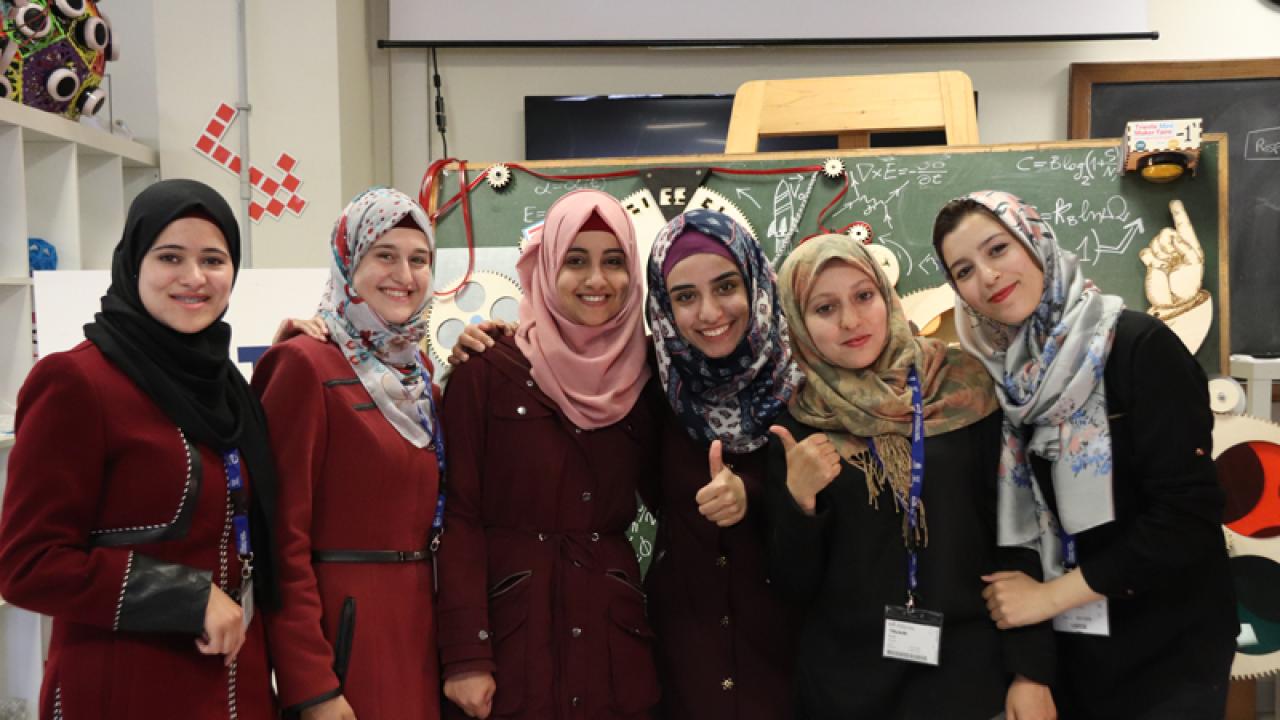
ICTP’s visiting scientists are often deeply focused on their research when they are in Trieste, coming from all over the world to focus on collaborating with other scientists in their field. On Friday 13 April, Trieste heard from some of these visitors, with a talk on how everyday problems can be tackled through science. Four Palestinian students who run a science outreach program in the West Bank called Science4People illustrated physics through simple experiments that can be done with easily findable materials, the same presentation that they have done for hundreds of students of all ages.
The presentation took place at the Trieste City of Knowledge center in the Trieste Central Train Station. The students were here thanks to a collaboration between ICTP, the SISSA MediaLab, the Sunshine4Palestine non-governmental organization, and the Young Minds section of the European Physical Society. Sunshine4Palestine helped a group of computer science and physics students at Bethlehem University to start the Science4People outreach program nearly a year ago. The students then started a tour of schools throughout the West Bank, presenting to nearly 400 students of ages 8 to 18. The tour aimed to bring the power, utility, and fascination of science to students living in dramatic conditions, frequently lacking science equipment as well as energy resources. Science4People hopes to expand and reach even more students in the coming months and years.
To help that mission of reaching and inspiring students with science, ICTP hosted four members of Science4People in its SciFabLab maker space. The four students all have experience in computer information systems, and are training in how to use and code for 3D printers and other tools, with the goal of opening a fabrication laboratory at Bethlehem University when the students return. Randa, Fatima, Nirmeen, and Azhar were at ICTP since April 2, and are planning on teaching their fellow Science4People members when they return home. Science4People will then run the new 3D-printing maker space, a laboratory dedicated to innovation and inspiration, making science accessible to not only students but also teachers and the public. The flexibility and potential of 3D printing will hopefully expand the possibilities of communities severely limited in economic resources.
Two students from the University of Beni Mellal in Morocco also joined the Palestinian students for the two weeks of training at ICTP’s SciFabLab, and are hoping to eventually start a fabrication laboratory at their home university. Both students are doctoral candidates in solar energy development topics, and hope that the fablab can help both science communication and their research.
















